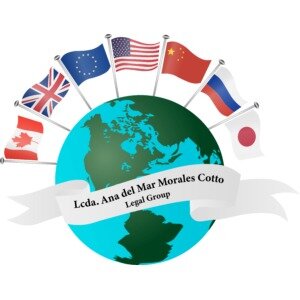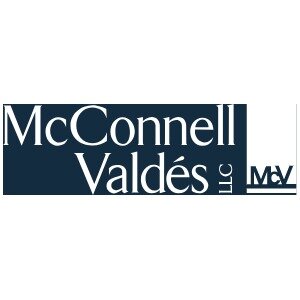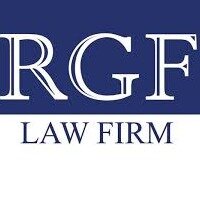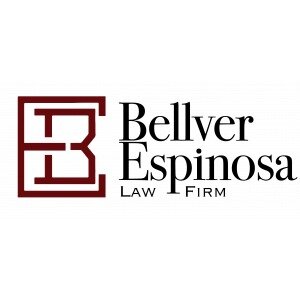Best Antitrust Litigation Lawyers in Puerto Rico
Share your needs with us, get contacted by law firms.
Free. Takes 2 min.
Or refine your search by selecting a city:
List of the best lawyers in Puerto Rico
About Antitrust Litigation Law in Puerto Rico
Antitrust litigation in Puerto Rico refers to legal actions aimed at enforcing laws that promote competitive markets and protect consumers from unfair business practices such as price fixing, monopolies, and collusion. Both federal and Puerto Rico law prohibit conduct that restrains trade or commerce and that leads to harm for competitors and consumers. In Puerto Rico, antitrust cases can involve businesses of all sizes and may concern issues such as exclusive agreements, bid rigging, tying arrangements, and other unfair competition practices.
Why You May Need a Lawyer
Navigating antitrust litigation can be complex, requiring in-depth understanding of both local and federal regulations. Here are common situations where you may need a lawyer:
- You suspect another company is engaging in anti-competitive practices harming your business.
- Your business is facing a government or private investigation concerning alleged antitrust violations.
- You wish to merge or acquire another business and want to ensure compliance with antitrust laws.
- You are part of a group harmed by price fixing, bid rigging or market allocation.
- Your contracts or business agreements are challenged as restraining trade.
- You are defending your company against antitrust claims or lawsuits.
In all these scenarios, an experienced antitrust attorney can assess the facts, explain your rights and obligations, and represent you throughout investigations, negotiations, or court proceedings.
Local Laws Overview
Antitrust litigation in Puerto Rico involves the enforcement of both federal statutes, such as the Sherman Act and Clayton Act, and local statutes such as the Puerto Rico Antitrust Act (Ley Núm. 77 de 25 de junio de 1964). Key aspects include:
- Prohibition of Restraints of Trade - Both US and Puerto Rico law make illegal all contracts, combinations, or conspiracies in restraint of trade.
- Monopolization - It is unlawful for any business to monopolize, or attempt to monopolize, any part of trade or commerce in Puerto Rico.
- Merger Control - Certain mergers or acquisitions may be reviewed to ensure they do not substantially lessen competition in any market.
- Private Right of Action - Individuals and businesses harmed by antitrust violations may sue for damages, including treble damages under specific circumstances.
- Government Investigations - Antitrust laws are enforced by both the US Department of Justice and Puerto Rico’s Department of Justice.
- Unfair Competition Remedies - Courts can order damages, injunctive relief, or other remedies to restore competitive conditions.
Frequently Asked Questions
What is antitrust litigation?
Antitrust litigation involves legal proceedings addressing unfair business practices that restrain trade, such as monopolization, price fixing, and market allocation, often filed by affected parties or governmental agencies.
Are Puerto Rico businesses subject to US federal antitrust laws?
Yes. Businesses operating in Puerto Rico must comply with both US federal antitrust laws and Puerto Rico’s local statutes.
What conduct is considered an antitrust violation?
Common violations include price fixing, bid rigging, exclusive dealing, tying arrangements, market allocation, and monopolistic practices.
Who enforces antitrust laws in Puerto Rico?
Antitrust laws are enforced by both the US Department of Justice Antitrust Division and Puerto Rico’s Department of Justice, as well as through private lawsuits.
Can individuals or small businesses file antitrust lawsuits?
Yes. Anyone harmed by antitrust violations may file a lawsuit and potentially recover damages if successful.
What remedies are available if I win an antitrust lawsuit?
Remedies may include monetary damages, often trebled, injunctions to stop illegal activities, and, in some cases, court orders to break up monopolies.
Can I get legal advice before a merger or acquisition?
Yes. It is advised to consult an antitrust attorney before proceeding with mergers or acquisitions to ensure compliance with applicable laws and to avoid future litigation.
How long do antitrust cases usually take?
Antitrust cases can be complex and lengthy, often taking several months to years depending on the facts and the court's schedule.
What should I do if I receive a government subpoena related to antitrust?
Immediately consult an experienced antitrust attorney. Do not destroy or alter any documents and follow your lawyer’s advice regarding responding to the subpoena.
Is mediation or settlement possible in antitrust cases?
Yes. Many antitrust disputes are resolved through settlements or alternative dispute resolution methods, though some do proceed to trial.
Additional Resources
If you need more information or assistance relating to antitrust litigation in Puerto Rico, consider these resources:
- Puerto Rico Department of Justice - Antitrust Division
- US Department of Justice - Antitrust Division
- Federal Trade Commission (FTC)
- Puerto Rico Bar Association
- Law libraries and legal aid organizations in Puerto Rico
These organizations offer informational materials, complaint submission processes, and may provide references to qualified attorneys.
Next Steps
If you believe you are affected by or accused of an antitrust violation in Puerto Rico, take these steps:
- Document all relevant business conduct, communications, and agreements.
- Consult an attorney experienced in antitrust litigation as soon as possible.
- Prepare all relevant company records and correspondence for legal review.
- Follow your lawyer’s recommendations regarding communication with opposing parties or government investigators.
- Consider evaluating alternative dispute resolution options with your lawyer if appropriate.
Seeking early legal advice will increase your chances of a successful resolution and help minimize potential risks to your business or personal interests.
Lawzana helps you find the best lawyers and law firms in Puerto Rico through a curated and pre-screened list of qualified legal professionals. Our platform offers rankings and detailed profiles of attorneys and law firms, allowing you to compare based on practice areas, including Antitrust Litigation, experience, and client feedback.
Each profile includes a description of the firm's areas of practice, client reviews, team members and partners, year of establishment, spoken languages, office locations, contact information, social media presence, and any published articles or resources. Most firms on our platform speak English and are experienced in both local and international legal matters.
Get a quote from top-rated law firms in Puerto Rico — quickly, securely, and without unnecessary hassle.
Disclaimer:
The information provided on this page is for general informational purposes only and does not constitute legal advice. While we strive to ensure the accuracy and relevance of the content, legal information may change over time, and interpretations of the law can vary. You should always consult with a qualified legal professional for advice specific to your situation.
We disclaim all liability for actions taken or not taken based on the content of this page. If you believe any information is incorrect or outdated, please contact us, and we will review and update it where appropriate.
Browse antitrust litigation law firms by city in Puerto Rico
Refine your search by selecting a city.













